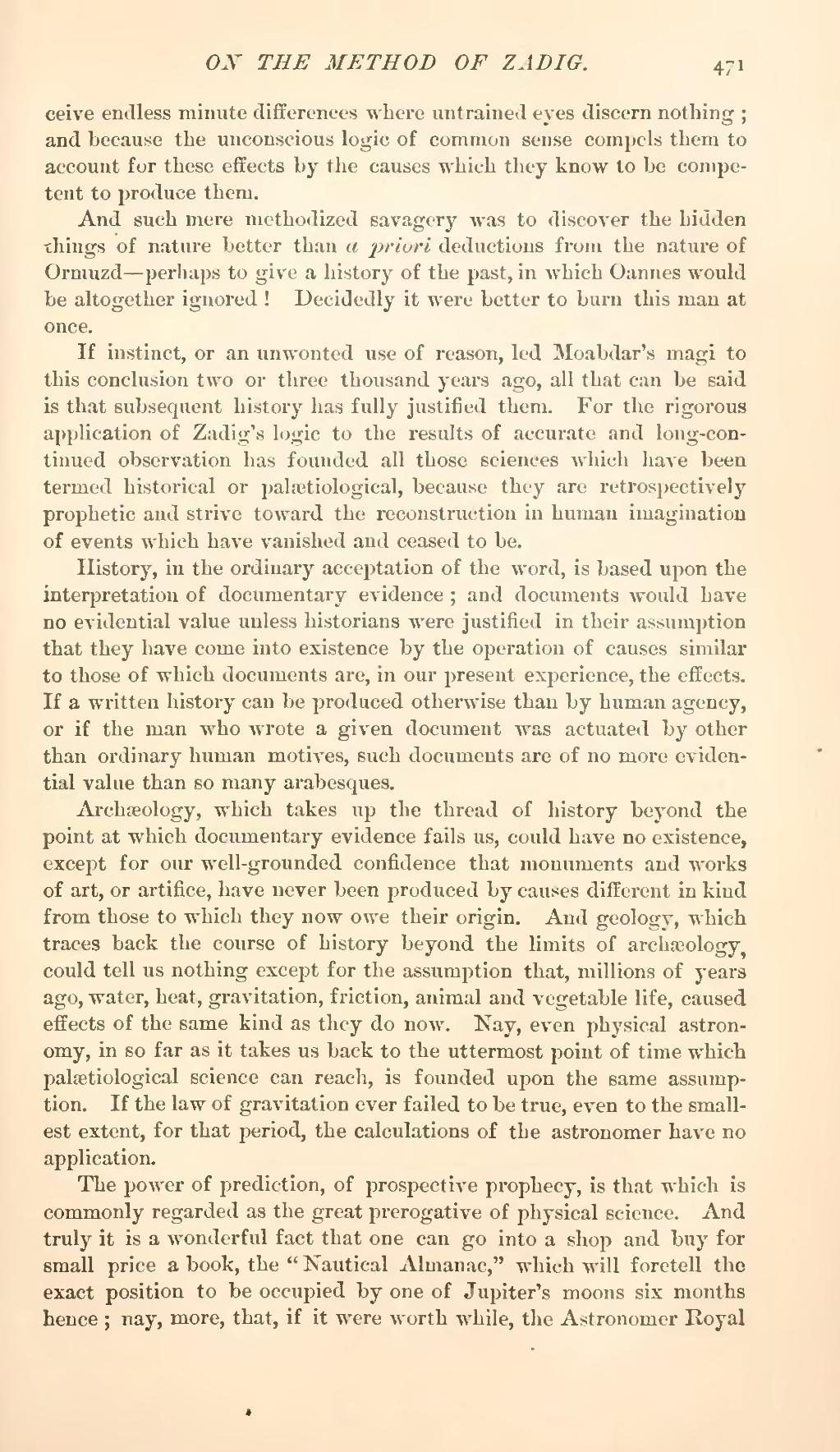ceive endless minute differences where untrained eyes discern nothing; and because the unconscious logic of common sense compels them to account for these effects by the causes which they know to be competent to produce them.
And such mere methodized savagery was to discover the hidden things of nature better than a priori deductions from the nature of Ormuzd—perhaps to give a history of the past, in which Oannes would be altogether ignored! Decidedly it were better to burn this man at once.
If instinct, or an unwonted use of reason, led Moabdar's magi to this conclusion two or three thousand years ago, all that can be said is that subsequent history has fully justified them. For the rigorous application of Zadig's logic to the results of accurate and long-continued observation has founded all those sciences which have been termed historical or palætiological, because they are retrospectively prophetic and strive toward the reconstruction in human imagination of events which have vanished and ceased to be.
History, in the ordinary acceptation of the word, is based upon the interpretation of documentary evidence; and documents would have no evidential value unless historians were justified in their assumption that they have come into existence by the operation of causes similar to those of which documents are, in our present experience, the effects. If a written history can be produced otherwise than by human agency, or if the man who wrote a given document was actuated by other than ordinary human motives, such documents are of no more evidential value than so many arabesques.
Archæology, which takes up the thread of history beyond the point at which documentary evidence fails us, could have no existence, except for our well-grounded confidence that monuments and works of art, or artifice, have never been produced by causes different in kind from those to which they now owe their origin. And geology, which traces back the course of history beyond the limits of archæology could tell us nothing except for the assumption that, millions of years ago, water, heat, gravitation, friction, animal and vegetable life, caused effects of the same kind as they do now. Nay, even physical astronomy, in so far as it takes us back to the uttermost point of time which palætiological science can reach, is founded upon the same assumption. If the law of gravitation ever failed to be true, even to the smallest extent, for that period, the calculations of the astronomer have no application.
The power of prediction, of prospective prophecy, is that which is commonly regarded as the great prerogative of physical science. And truly it is a wonderful fact that one can go into a shop and buy for small price a book, the "Nautical Almanac," which will foretell the exact position to be occupied by one of Jupiter's moons six months hence; nay, more, that, if it were worth while, the Astronomer Royal
